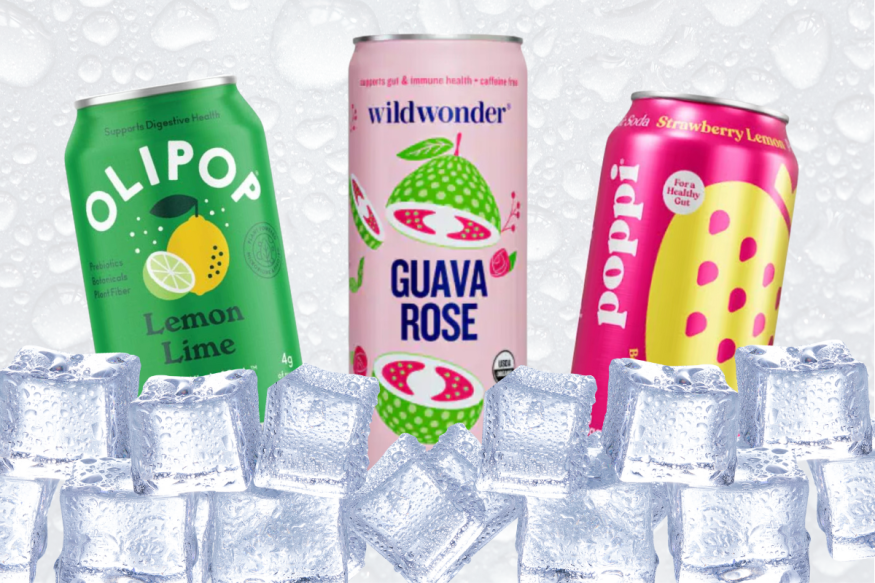
With the recent hullabaloo over Poppi's claims that their sodas promote a healthy gut, we figured now might be a good time to really dig into the trend to spare anyone else the trouble of a lawsuit. If you're a little behind on your prebiotic soda news, a California woman named Kristin Cobbs is suing Poppi soda because she "reasonably relied" on the brand's claims that the beverage supports gut health, and subsequently bought a slew of the product.
The trouble is, Poppi, along with other prebiotic soda brands, only average between 2-5 grams of prebiotic fiber per can, according to UCLA Health. In order to supplement your diet with enough prebiotic fiber to meet the recommended daily amount, you'd have to consume so much soda that the small nutritional benefits would be rendered moot due to the extra sugar you'd consume. The exception to this rule may lie with the Olipop soda brand, which contains a solid nine grams of prebiotic fiber per can.
What Does This Mean for Prebiotic Soda Lovers?
Essentially, this means that consumers shouldn't be relying on sodas - or any beverages, for that matter - to meet their daily recommended requirements for any specific nutrient. Think of these items simply as "better-for-you alternatives" to traditional soda. After all, they contain far less sugar (averaging five grams of sugar or less per can) and calories (averaging less than 50 calories per can) than regular soda.
According to Los Angeles nutrition expert Valerie Poirier, "A food-first approach is recommended, meaning you should primarily consume fiber-rich foods to support your gut health and consider adding prebiotic sodas later."
Are There Concerns Associated With Drinking Prebiotic Sodas?
According to Poirier, "If you're not accustomed to consuming prebiotics or have a sensitive stomach, this type of (prebiotic) fiber can pose challenges and may not be suitable for everyone." She continues, "Consuming a large amount of prebiotics, especially all at once, can worsen gastrointestinal issues rather than alleviate them, potentially causing more gas or bloating, particularly for those with underlying GI conditions. It's likely best to avoid drinking several of these sodas in quick succession."
Poirier also notes that individual reactions to different types of prebiotics can vary. For example, the agave inulin (a type of prebiotic dietary fiber that comes from the fibrous roots of the agave plant) Poppi soda might not sit well with your stomach, but the chicory root and Jerusalem artichoke inulin in Olipop could be a better fit for you.

Consult a Professional
When thinking about adding a nutritional supplement of any kind to your diet, it's always prudent to consult with your doctor or a trusted dietician or nutritionist. Poirier says this point is especially important if you're on medication, as the functional ingredients in these sodas may have the potential to interact with certain drugs or complicate preexisting conditions.
Her final thoughts? "Just because something is marketed as healthy doesn't mean it's right for everyone. Do your research before trying these drinks - and pay attention to how your body reacts." It will tell you everything you need to know.
© copyright 2024 Food World News, a property of HNGN Inc. All rights reserved. Use of this website constitutes acceptance of our terms and conditions of use and privacy policy.



